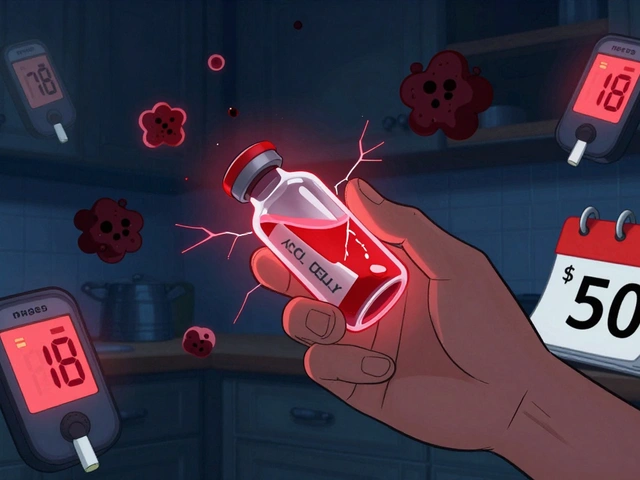Cough Relief: Fast, Safe Ways to Stop That Annoying Cough
Got a cough that won't quit? A cough can be your body's way of clearing mucus, or it's just a dry tickle that keeps you up at night. The good news: most coughs calm down with a few simple steps. Below are realistic, useful things you can try right now.
Quick remedies that actually help
Start with the basics. Stay hydrated — warm drinks soothe the throat and thin mucus. Try honey in warm water or tea (only for kids over 1 year). Use a humidifier or inhale steam from a bowl of hot water for 10 minutes to ease tight airways. Suck on throat lozenges or hard candy to quiet a tickly cough. Avoid smoke, strong perfumes, and cold dry air — they make coughs worse.
If mucus is thick, an expectorant like guaifenesin (available over the counter) can help loosen it so you can clear your chest. For a dry, hacking cough that keeps you from sleeping, a cough suppressant with dextromethorphan may reduce the urge to cough at night. Always read labels and follow dosing instructions or ask a pharmacist if you’re unsure.
When medicines or doctor advice make sense
OTC meds are fine for short-term relief, but don’t mix multiple products that treat the same symptom. If you take other prescriptions — especially blood pressure, heart, or antidepressant drugs — check with a pharmacist about interactions. Children and older adults need extra caution: talk to a healthcare professional before giving them cough medicine.
See a doctor if your cough lasts more than 2–3 weeks, if you cough up blood, have high fever, experience shortness of breath, or notice chest pain. Those signs can point to pneumonia, bronchitis, or another condition that needs prescription treatment. If your cough started after a new medication (for example, an ACE inhibitor for blood pressure), ask your prescriber whether the drug could be the cause.
Allergies and reflux can also trigger a chronic cough. If your cough comes with itchy eyes and sneezing, allergy meds or nasal sprays may help. If it’s worse after meals or when lying down, acid reflux could be the culprit — lifestyle changes and antacids might ease it, but get checked if symptoms persist.
Simple steps often do the trick: rest, fluids, steam, and a night-time cough suppressant if needed. If you’re unsure which remedy is right for you, contact a pharmacist or your healthcare provider. Quick action and sensible choices usually lead to fast relief — and fewer sleepless, coughy nights.
Iceland moss is getting serious attention for its unique blend of immune-boosting polysaccharides and antioxidants. Traditionally used across the Nordic countries as a remedy for coughs and chest discomfort, this lichen now has modern research to back up the old wisdom. Dive deep into what makes Iceland moss tick, how the Vikings used it, and whether those natural compounds truly keep colds and infections at bay. Learn practical ways to use Iceland moss at home and get tips on choosing the best supplements. Discover why this ancient remedy deserves a spot in your wellness routine.
View Details

